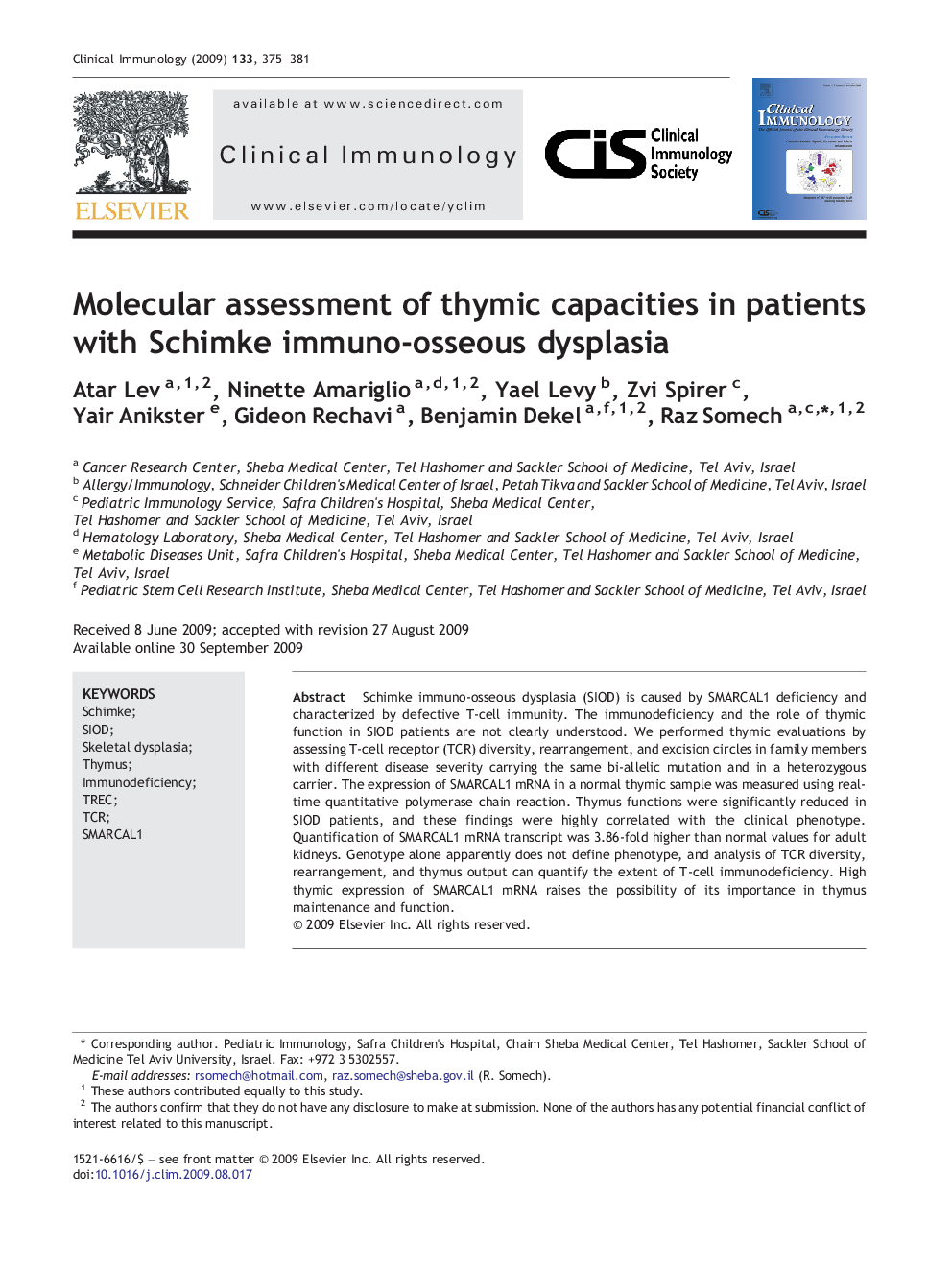| Article ID | Journal | Published Year | Pages | File Type |
|---|---|---|---|---|
| 3257399 | Clinical Immunology | 2009 | 7 Pages |
Abstract
Schimke immuno-osseous dysplasia (SIOD) is caused by SMARCAL1 deficiency and characterized by defective T-cell immunity. The immunodeficiency and the role of thymic function in SIOD patients are not clearly understood. We performed thymic evaluations by assessing T-cell receptor (TCR) diversity, rearrangement, and excision circles in family members with different disease severity carrying the same bi-allelic mutation and in a heterozygous carrier. The expression of SMARCAL1 mRNA in a normal thymic sample was measured using real-time quantitative polymerase chain reaction. Thymus functions were significantly reduced in SIOD patients, and these findings were highly correlated with the clinical phenotype. Quantification of SMARCAL1 mRNA transcript was 3.86-fold higher than normal values for adult kidneys. Genotype alone apparently does not define phenotype, and analysis of TCR diversity, rearrangement, and thymus output can quantify the extent of T-cell immunodeficiency. High thymic expression of SMARCAL1 mRNA raises the possibility of its importance in thymus maintenance and function.
Related Topics
Life Sciences
Immunology and Microbiology
Immunology
Authors
Atar Lev, Ninette Amariglio, Yael Levy, Zvi Spirer, Yair Anikster, Gideon Rechavi, Benjamin Dekel, Raz Somech,
